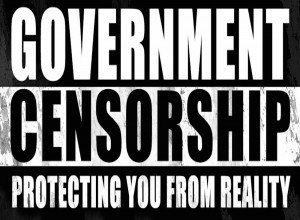With the Department of Justice and U.S. regulators failing to stop fraud and corruption in the banking system following the 2008 Credit Crisis, it provided the banks a free ticket and ‘get out jail free’ card to continue their criminal activities unabated. This of course led to more than a dozen instances of fraud and collusion in market mechanisms such as Forex, Libor, money laundering, robo-signing, the gold and silver markets, and many more.
But since the ones charged by Congress and the White House to oversee the banking system not only failed in their duties, but in many cases aided in the fraud, it is now up to the investment arm of the Chicago Teacher’s Pension and Retirement Fund to file a class action lawsuit against most of the major U.S. banks for their part in rate rigging and manipulation, and for the losses incurred by the pension fund because of this fraud.
Ten of the biggest Wall Street banks and two trading platforms face a US class action suit accusing them of conspiring to limit competition in the $320 trillion market for interest rate swaps.
The antitrust complaint was filed by the Public School Teachers’ Pension and Retirement Fund of Chicago, according to Reuters. They purchased interest rate swaps from different banks to manage risk and insulate themselves from changes in monetary policy.
The Chicago Teachers’ Pension and Retirement Fund says it overpaid for the swaps as a result of the banks’ collusion, the lawsuit contends.
The banks accused are Goldman Sachs, Bank of America, JPMorgan, Citigroup, Credit Suisse, Barclays, BNP Paribas, UBS, Deutsche Bank, and the Royal Bank of Scotland. Trading platforms ICAP Capital Markets and Tradeweb Markets are also facing the lawsuit. – Russia Today
Perhaps what is most surprising about how long it has taken one or more pension funds to bring action against the banks is that many municipal retirement funds have become vastly underfunded over the past seven years, and much of it is in part to how Wall Street has rigged the system to siphon earnings away from the investor and into their own pockets. The state of Illinois alone has an estimated $111 billion shortfall in underfunded liabilities, and a large portion of this is in the Chicago municipal system.
Wall Street is more than happy to commit fraud and manipulation knowing that they can reap billions if not trillions of dollars in profits while paying a small fine if caught for their criminal activity. And perhaps it will take many more civil lawsuits, similar to the ones filed by state Attorney Generals following the Mortgage Backed Securities (MBS) fraud that was a big part of the last housing bubble, to slow down the banks ability to de-fraud investors and bring back some semblance of regulation and rules to the financial system.
Kenneth Schortgen Jr is a writer for Secretsofthefed.com, Examiner.com, Roguemoney.net, and To the Death Media, and hosts the popular web blog, The Daily Economist. Ken can also be heard Wednesday afternoons giving an weekly economic report on the Angel Clark radio show.


